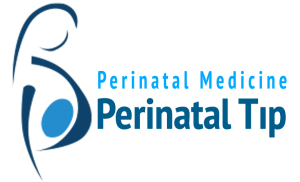
The Role of Multi-Vitamin Supplementation in Pregnancy
 The amount of energy, protein, vitamins and minerals
The amount of energy, protein, vitamins and minerals
that non-pregnant women between the ages of 19-50, pregnant women and women in the lactation period should be taken daily by the National Research Council Food and Nutrition Board in the USA (Recommended Daily Allowances (RDA) was published in 1989. The recommended amounts should be used as a guide on a social basis, not for personal use, because nutritional requirements may vary from person to person. The use of prenatal vitamin-mineral preparations may cause a person to take some nutrients in excess of the recommended amounts (RDA). Especially in high amounts Intake of iron, zinc, selenium, vitamins A, B6, C and D may cause some toxic effects. In a study conducted by Rothman et al on 20,000 pregnant women, it was revealed that daily intake of Vitamin A exceeding 15,000 IU is closely related to congenital defects. diabetes in the periconceptional period Failure to adjust blood glucose levels in tic patients and blood phenylalanine levels in women with phenylketonuria leads to poor pregnancy outcomes.
The American Academy of Pediatrics and ACOG recommend no more than twice the recommended RDA doses during pregnancy and do not recommend routine multivitamin supplementation. The Institute of Medicine stated in 1990 that all vitamin and mineral needs except iron can be met with a balanced diet during pregnancy and stated that routine vitamin supplementation other than iron is unnecessary. Subsequently, with the discovery that periconceptional folic acid supplementation reduces neural tube defects by approximately half, the U.S. The Centers for Disease Control and Prevention recommended that all women of childbearing potential take 0.4 mg of folic acid daily. In addition, it has been suggested that this supplement should be 4 mg in women who have previously given birth to a baby with a neural tube defect. More research is needed to determine whether preconceptional intake of other vitamins has effects on reducing other congenital defects. Evidence from observational studies is that multivitamin-mineral supplementation before conception and during pregnancy reduces birth defects and poor perinatal outcomes. It has been demonstrated in some observational studies that vitamin-mineral supplementation initiated in the first or second trimester reduces the risk of preterm birth and the probability of a low birth weight baby by 2 times.
Although there is not enough scientific evidence that routine vitamin supplementation improves pregnancy outcomes, it has been shown that multivitamin-mineral supplementation in adolescent pregnancies with severe nutritional deficiency significantly reduces preterm births and babies with low birth weight.
The Institute of Medicine and ACOG reported that routine vitamin supplementation other than iron is unnecessary during pregnancy. However, both institutions stated that the daily nutritional habits of every pregnant woman should be evaluated and a multivitamin supplement should be provided at the beginning of the second trimester when insufficient nutritional intake is considered or if there is a case of being included in the high-risk categories.
In a study conducted by Siega-Riz in 2002, when pregnant women in North Carolina were examined, it was revealed that the recommended iron intake through diet alone could be met in only 30% of pregnant women and folate intake in only 60% of pregnant women. This showed that American women, even with high income levels, could not meet their nutritional needs through food alone, and revealed the need for multivitamin support to a significant pregnant population. However, in compliance studies, it was observed that approximately 1/3 of the pregnant women did not take the prescribed multivitamins. It has been observed that women with lower education levels and younger age use less multivitamins.
As a result, it should be clearly emphasized that even when multivitamin support is given to pregnant women, multivitamin preparations do not meet all of the necessary nutrients, but only a part of them, and they will never replace a healthy diet. Pregnant women should be made aware of a balanced and varied diet, and their nutritional habits should be evaluated. Folate supplementation should be given to all women during the periconceptional/early pregnancy period. Except for iron and folate, all the nutrients that the need for increases during pregnancy can be met through diet (unless the patient has a nutritional risk factor) by raising awareness about a balanced diet.